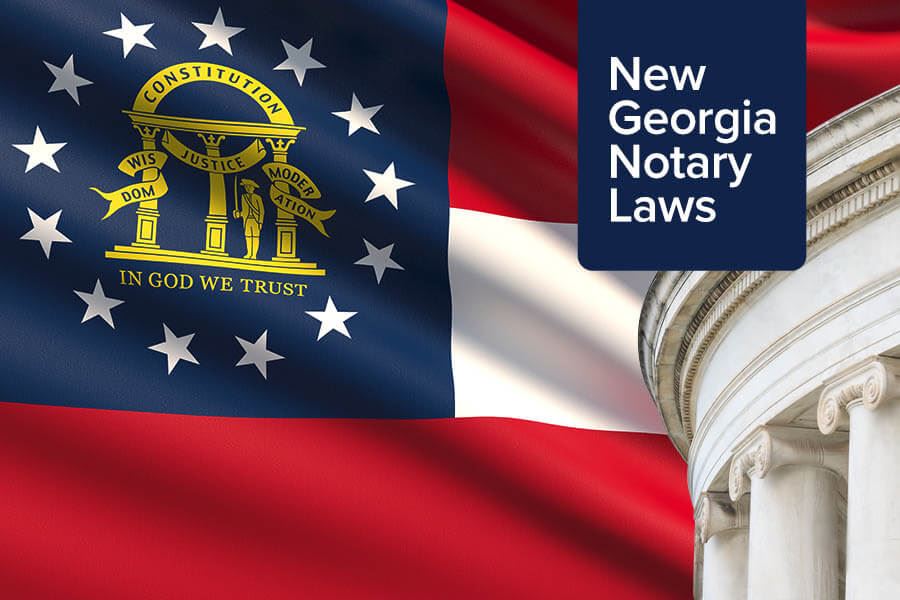
A new law, House Bill 1292, takes effect next month and requires all Notary commission applicants in Georgia to complete a mandatory training course provided by the state. The law clarifies the types of ID Notaries may accept from signers and requires Georgia Notaries to keep a journal record of certain notarial acts. Below, we answer questions you may have about the new law.
What are the new training requirements for Georgia Notary applicants?
Under GA HB 1292 and rules adopted by the Georgia Superior Court Clerks’ Cooperative Authority (GSCCCA), all new and renewing applicants for a Notary Public commission in Georgia must complete an educational training course as part of the application process. The new training requirement takes effect January 1, 2025.
If I’m currently serving as a Georgia Notary, will I have to take the training course when I renew my commission?
Yes. Renewing Notary commission applicants in Georgia are required to take the course within 30 days prior to each subsequent renewal appointment.
Where can I take the training, and what do I need to do after I finish?
GSCCCA is providing the new Georgia Notary training course online. After successfully completing the course, the applicant will receive a certificate of completion, which must be submitted with the application to the Clerk of the Superior Court in the county where the applicant is applying.
What are the new journal requirements for Georgia Notaries under this new law?
Starting January 1, 2025, Georgia Notaries must maintain a written or electronic journal for notarizations performed at the request of a “self-filer.”
A “self-filer” is any person who is a party to certain documents that convey, transfer, encumber, or affect real estate and personal property, such as deeds, mortgages, liens, maps or plats related to real estate, or state tax executions and tax execution renewals, with some exceptions specified in the law Read our GA House Bill 1292 Notary Law Update for more details.
Since it is not always possible to know in advance if the person you’ll be notarizing for is a “self-filer,” the NNA recommends that Georgia Notaries make a journal entry for all notarizations they perform to ensure compliance with the new journal requirements, simplify recordkeeping, and to avoid accidental errors or omissions.
What information must Georgia Notaries record in their journal entries?
Georgia Notaries must include the following information in each journal entry:
- The name of the signer
- The signer’s address and telephone number
- The date, time and location of the notarization
- The type of government-issued photo ID presented by the signer, including any identifying number
- The signer’s signature
- The type of document presented for notarization
What are the new identification guidelines for Georgia Notaries?
Signers may be identified through a Georgia Notary’s personal knowledge or a government-issued photo identification document. Prior to the new law’s enactment, Georgia provided suggestions for what IDs could be used as “satisfactory evidence” for identification, but the new law clarifies that a signer ID must be government-issued and include a photograph. Some examples of acceptable IDs include the following:
- A valid driver’s license
- A non-driver identification card issued by the state Department of Driver Services
- A military identification card such as a Veterans Health Identification Card issued by the U.S. Department of Veterans Affairs
Where can I get help applying for or renewing my Georgia Notary commission?
The NNA can help you with applying for a new commission or renewing an existing Georgia Notary commission, including meeting the requirements of the new state law. Contact our Customer Care team at 1-800-876-6827 or email us at services@nationalnotary.org to request assistance.
NNA members with questions about the new Georgia identification and journal requirements can call the NNA Hotline at 1-888-876-0827 or submit questions online.
David Thun is the Editorial Manager at the National Notary Association.